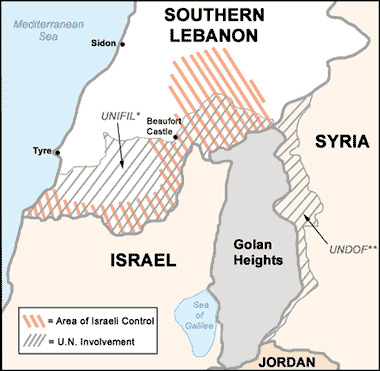 |
| Israel once had a buffer zone in southern Lebanon as well |
Israel and Syria have fought three major wars against each other - 1948, 1967 and 1973 - and both Hafez al-Assad and his son Bashar have demonstrated implacable hostility towards the Israelis. Nevertheless, from Israel's perspective, the Assad's have kept Israel's northern front quiet for 40 years, and Israel has generally taken the attitude of "the devil you know is better then the devil you don't" in its' attitude towards the Assad regime. However, while there is no doubt that Israel would obtain some benefits from the fall of the Assad regime - the regime is after all a close ally of both Hezbollah and Israel's mortal enemy Iran - the Israelis' fear of what exactly might be on their northern border after Assad falls is also legitimate fear in my opinion.
If you look at what has happened recently in the Middle East recently after authoritarian regimes have fallen, the picture is not exactly comforting. In Iraq, chaos and civil war erupted after Saddam Hussein fell; in Libya, after Ghaddafi was killed, we have seen a great deal of chaos in the country, including of course the jihadist
attack on the US consulate in Benghazi which killed four Americans, including the US Ambassador. And now, in Egypt, well let's just say the situation is not exactly trending towards stability.
Turning again to the possibility of Israel establishing a buffer zone on on the territory of one of its' neighbors is not unprecedented. As the map above demonstrates, Israel kept a buffer zone in southern Lebanon for over 15 years to keep Hezbollah away from its northern border. However, maintaining this buffer zone was a constant struggle for the Israelis against determined Hezbollah guerrillas which some commentators even described as being a "mini Vietnam" for the Israeli Defense Forces. While we are currently just seeing speculation, it does seem quite credible that Israel would now be planning for security contingencies in a post-Assad world.
No comments:
Post a Comment